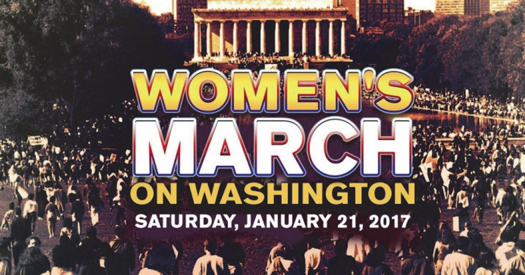Women’s march controversy and questions about power, agendas
By Nisa Islam Muhammad -Staff Writer- | Last updated: Jan 18, 2017 - 11:46:02 AMWhat's your opinion on this article?

|
WASHINGTON—The Women’s March on Washington, planned for Jan. 21, has faced a range of controversies, including the Portland NAACP withdrawing support from a sister march and White women unhappy with Black criticism that they need to listen more and talk less.
Black women were angered when the effort’s mostly White women organizers initially called it the Million Women March.
“We were quite offended that they would call it the Million Women March,” Phile Chionesu told The Final Call. She is founder of the successful 1997 gathering held in Philadelphia. “We had already announced a reunion in October 2017 for the 20th anniversary. We started getting calls from people asking if we had something to do with it because it wasn’t Black women heading it up. We knew nothing about it.”
“They had a clear LGBTQ agenda and created this confusion by saying we were involved. Sisters blasted them on social media and then we replied that we would sue them if they didn’t change the name. It was a conniving, devious move in the first place,” she said.
That challenge forced organizers to quickly change the name to the Women’s March on Washington and appeal for Black, Muslim and Latino women in leadership. That leadership now includes three prominent activist women of color, Tamika Mallory, a gun control advocate and board member of the Gathering for Justice, a nonprofit founded by Harry Belafonte; Linda Sarsour, executive director of the Arab American Association of New York; and Carmen Perez, executive director of the Gathering for Justice.
They have tried to give the march a new tone and tenor that makes sure women of color feel welcome and call for a range of women to participate.
“We believe that Women’s Rights are Human Rights and Human Rights are Women’s Rights. We must create a society in which women—in particular Black women, Native women, poor women, immigrant women, Muslim women, and queer and trans women—are free and able to care for and nurture their families, however they are formed, in safe and healthy environments free from structural impediments,” the group said in a Jan. 12 statement.
What started as a White feminist protest over election results is supported by 200 progressive groups dealing with environmental issues, prisoners’ rights, voting rights, affordable health care, gun safety, racial and gender equality and a higher minimum wage and other issues, according to organizers.
“This is not just about a march. It’s about having deep and courageous conversations about race and privilege. We cannot heal as a nation if we do not address the wounds of racism. This dialogue is not an accident, it’s intentional and by design,” said Linda Sarsour on Facebook.
The lack of opportunity to take conversations to deep places upset Black women in Portland who were told the city’s sister march would not discuss President-elect Trump or Black Lives Matter.
“I didn’t want to be part of the march if it was going to be a White-woman kumbaya march,” Jo Ann Hardesty of the Portland NAACP told the Willamette Week.
“I can’t imagine bringing 20,000 women together and not addressing the most critical issues that are facing women in our community,” she said.
Organizers say more than 270 solidarity marches are planned in all 50 states, two territories, and in 33 countries, with expected participation of more than 500,000 people.
Participants will gather in the nation’s capital at 10 a.m. EST, Saturday, January 21. The starting point will be the intersection of Independence Avenue and Third Street SW, near the U.S. Capitol.
While some Whites are rejecting the march over feelings of exclusion some Blacks are rejecting it because of the disrespect they felt from the beginning.
Carmen Perez, co-chair of the Women’s March sees an opportunity. “Women don’t live single-issue lives and we are thrilled to be joined by women who understand and reflect the intersecting issues for which we stand,” she said. “Women deserve to have equal rights in our society, regardless of whether they are low-wage workers, immigrants, of a minority faith, non-conforming gender expression, incarcerated—no matter where they exist in our society, all women deserve freedom and equity.”
INSIDE STORIES AND REVIEWS
-
-
About Harriett ... and the Negro Hollywood Road Show
By Rabiah Muhammad, Guest Columnist » Full Story -
Skepticism greets Jay-Z, NFL talk of inspiring change
By Bryan 18X Crawford and Richard B. Muhammad The Final Call Newspaper @TheFinalCall » Full Story -
The painful problem of Black girls and suicide
By Charlene Muhammad -National Correspondent- » Full Story -
Exploitation of Innocence - Report: Perceptions, policies hurting Black girls
By Charlene Muhammad -National Correspondent- » Full Story -
Big Ballin: Big ideas fuel a father’s Big Baller Brand and brash business sense
By Bryan Crawford -Contributing Writer- » Full Story






 Click Here Stay Connected!
Click Here Stay Connected!








